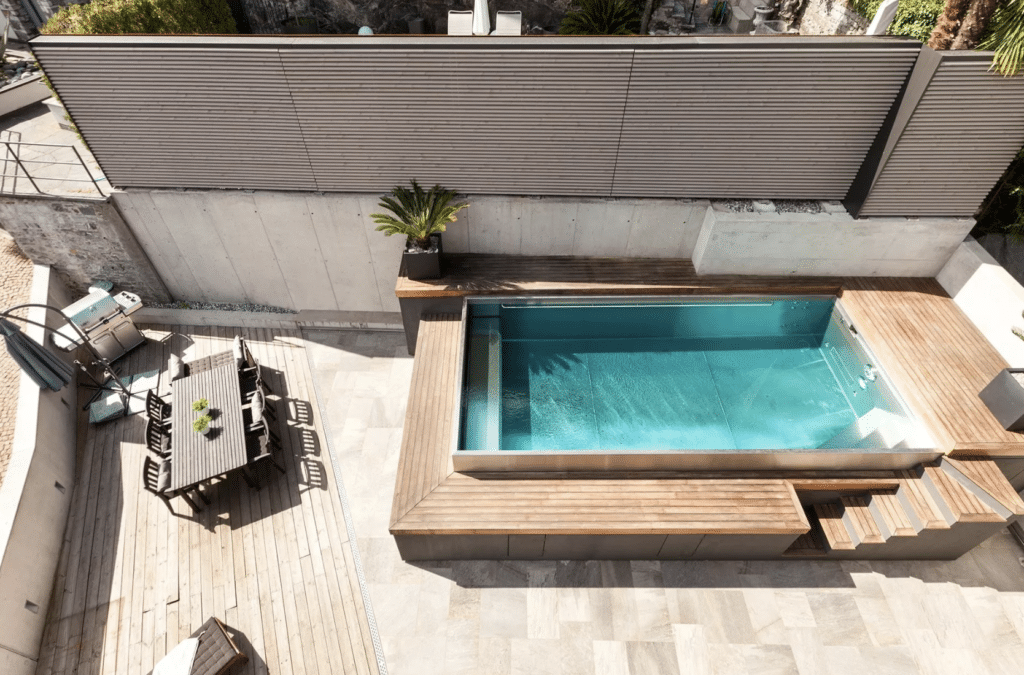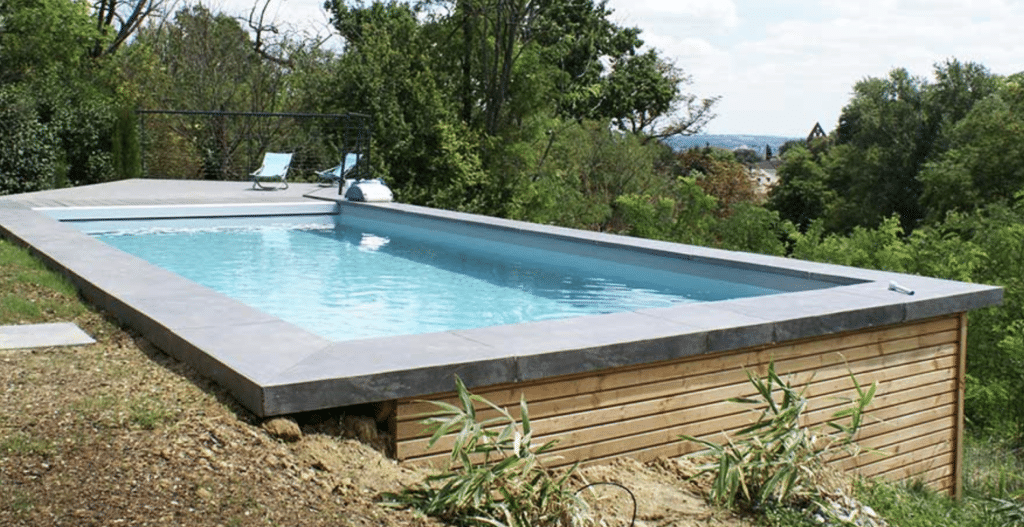Above-ground pools are becoming increasingly popular with consumers. While they may once have been the poor relation from an aesthetic point of view, manufacturers now offer elegant models of all sizes, which are also more ecological and more economical. Whether you live in a city center or have a hilly plot of land, the above-ground pool is THE solution for you. So why not you?

Above-ground pools are an economical and practical option, with reduced purchase, installation and maintenance costs. In fact, they have a simpler filtration system and require fewer chemicals to treat the water, thanks to their reduced water volume. They are therefore more environmentally friendly. They're easy to install, and the smaller ones don't require planning permission. Finally, they are available in a variety of sizes, shapes and designs, enabling them to be adapted aesthetically and functionally to different outdoor spaces. More and more above-ground pool models are being embellished with wood cladding or decorative panels to blend in better with the garden. Translated with DeepL.com (free version)
An above-ground pool is THE solution for sloping or hilly terrain. Grâce à sa structure auto-portante, elle convient à des terrains à fort dénivelé. In fact, the crucial point when it comes to installing an outdoor pool is the nature of the land on which it will be installed. Manufacturers offer a wide range of wooden, rigid shell and tubular models, all made from environmentally-friendly materials.

Faced with the strong demand of consumers, professionals have adapted by offering products with more ecological, water-saving and easy to maintain materials.A new European standard now requires manufacturers to indicate the A to F energy rating of their products and equipment.
Above ground pools come in all sizes (XS models without building permits) and compete with in ground pools in terms of aesthetics. Thanks to new energy solutions, many manufacturers offer solutions that are more economical in terms of water consumption and electricity.
There are several categories of above-ground pools, with very different construction materials. Here's a summary of the different types of pools and their prices:
You don't need to apply for planning permission if your pool is 10 m² or less. The installation must be removable and temporary (less than three months per year). However, there are a few exceptions. It's always advisable to check with your local town hall before installing your above-ground pool. Rules may vary according to local regulations or the specific features of the site (protected area, specific town-planning regulations, etc.). This will ensure that you comply with local requirements.
You pay no additional taxes, including local taxes, for a demountable pool installed temporarily (less than three months per year).
When the pool installation is permanent (more than three months/year) and measures more than 10 m², it is subject to the taxe d'aménagement. This tax is a one-off contribution, calculated according to the surface area and flat-rate value of the pool. The amount varies by commune and department.
A permanent above-ground pool generally means an increase in property tax. Its construction adds value to the property. This applies if the pool is permanent, connected to utilities (water, electricity) or based on specific landscaping.
Although the council tax is gradually being abolished for principal residences, a permanent swimming pool can have an impact on second homes. It increases the property's cadastral rental value.
The latest generations of above-ground pools are the perfect answer to expectations in terms of practicality and ease of maintenance. With their reduced water volume, they are part of a more ecological approach and can even be adapted to small outdoor spaces. Thanks to a wide range of modern, aesthetic features, they now combine functionality and style. It's important to note, however, that their lifespan, especially for self-supporting models, is limited (around 5 to 10 years), and that a pool, even an above-ground one, still requires regular water monitoring.